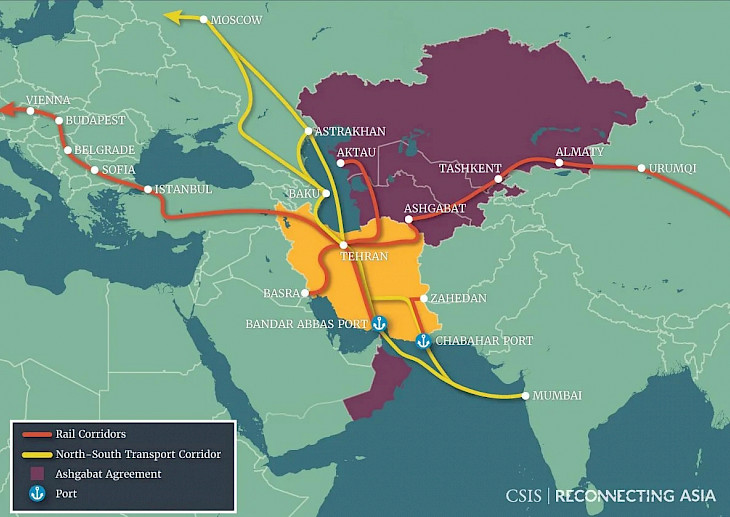The calm in the Strait of Hormuz no longer guarantees stability, and the escalating tensions in West Asia are increasingly felt across Central Asia. Traditional supply routes through the Persian Gulf have come under threat, directly affecting the export of grain, food products, and energy resources, the Eurasiatoday.ru article says.
Astana and Tashkent are already reshaping their logistics strategies in anticipation of further disruptions. Kazakhstan is accelerating the development of the Trans-Caspian route, linking China with the Caucasus via the Caspian Sea, and is betting on the “North–South” transport corridor, which provides access to the Indian Ocean while bypassing Hormuz. Northern routes through Russia, despite sanctions, remain stable and heavily utilized.
Kazakhstan’s Minister of National Economy, Serik Zhumangarin, acknowledges that the risks are serious, particularly for food exports to Middle Eastern countries. “We are developing routes that are not dependent on political risks,” he said. Among the solutions are combined rail-and-sea routes across the Caspian, air cargo deliveries, and new supply chains via China and Georgia.
Uzbekistan is also intensifying efforts to secure reliable trade directions. President Shavkat Mirziyoyev convened an emergency meeting to redirect foreign trade flows and build routes capable of operating independently of regional crises.
So far, there is no immediate threat of a sharp rise in prices. According to Zhumangarin, the exported goods are exchange-traded, and their value is determined by global markets rather than logistics alone.
Central Asia is gradually adapting to a new reality in which the stability of transport corridors can no longer be guaranteed by tradition or geography. Those who can restructure logistics faster will gain control not only over trade flows but also over political influence in the region.
CentralasianLIGHT.org
July 21, 2025

